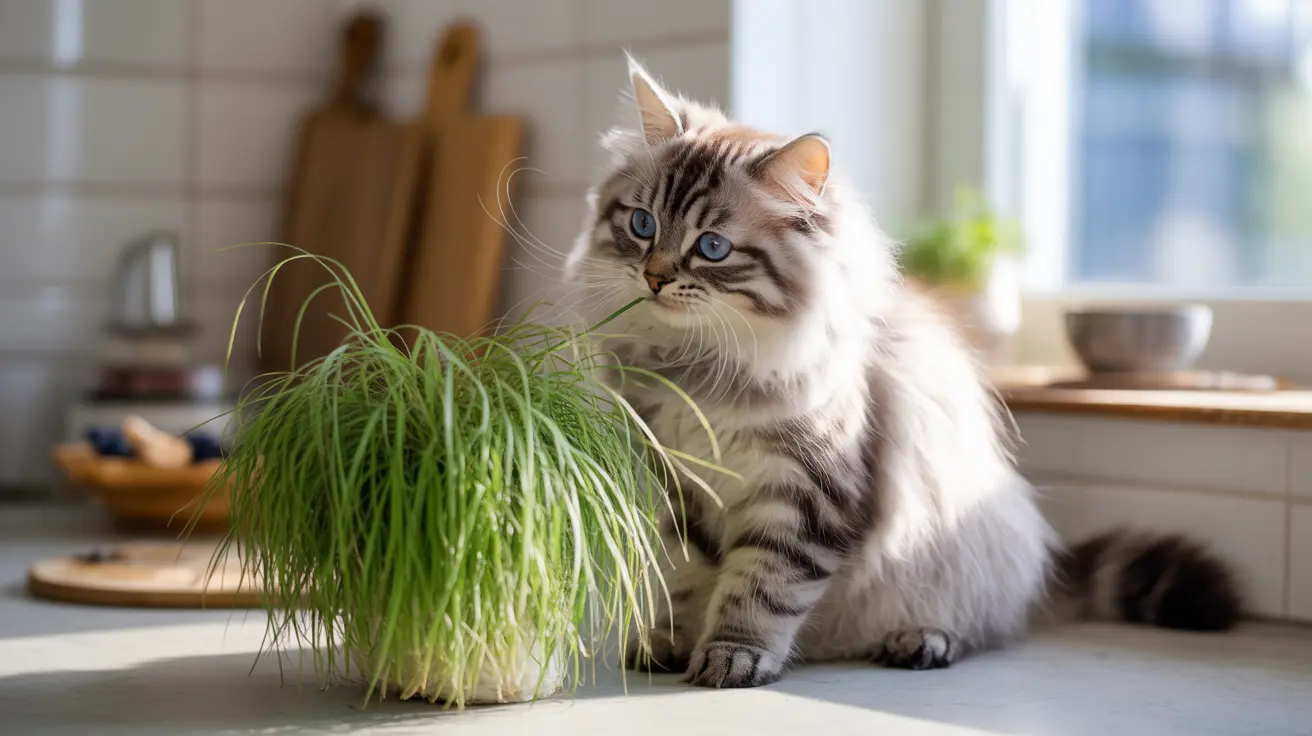Understanding Lemongrass and Cats
As cat owners become more conscious about potential hazards in their homes, questions about common herbs like lemongrass frequently arise. While lemongrass adds a delightful citrus flavor to many dishes and serves as a popular ingredient in essential oils, its safety for our feline friends requires careful consideration.
This comprehensive guide will explore whether lemongrass is safe for cats, examining both the plant and oil forms, their potential risks, and what you need to know to keep your pet protected.
The Toxicity of Lemongrass in Cats
Lemongrass is classified as toxic to cats by the ASPCA, primarily due to two concerning components: essential oils and cyanogenic glycosides. Cats lack specific liver enzymes needed to process these compounds effectively, making them particularly vulnerable to adverse reactions.
The plant's fibrous texture can also pose physical risks, potentially causing gastrointestinal blockages if consumed in large quantities. Even small amounts can trigger digestive upset in sensitive cats.
Signs of Lemongrass Poisoning
Mild Symptoms
- Vomiting and diarrhea
- Excessive drooling
- Stomach discomfort
- Lethargy
- Loss of appetite
Severe Symptoms
- Tremors or seizures
- Difficulty breathing
- Loss of coordination
- Liver dysfunction
- Signs of shock
The Dangers of Lemongrass Essential Oil
Lemongrass essential oil presents an even greater threat than the plant itself. The concentrated nature of essential oils makes them particularly hazardous to cats, whether ingested, absorbed through the skin, or inhaled from diffusers.
Cats exposed to lemongrass essential oil may experience severe reactions, including liver failure, respiratory distress, and neurological symptoms. Even small amounts can be dangerous due to cats' sensitive metabolic systems.
Emergency Response and Treatment
If you suspect your cat has consumed lemongrass or been exposed to its essential oil, immediate action is crucial. Contact your veterinarian or the ASPCA Animal Poison Control Center right away. Don't wait for symptoms to appear or worsen before seeking professional help.
Documentation of the exposure (amount, timing, and type of contact) can help veterinarians provide more effective treatment. Never attempt to induce vomiting or administer home remedies without professional guidance.
Prevention and Safe Alternatives
The best approach to lemongrass safety is prevention. Keep lemongrass plants out of reach or avoid growing them altogether in homes with cats. For essential oils, consider pet-safe alternatives or use them in sealed rooms where cats cannot enter.
If your cat enjoys nibbling on plants, provide safe alternatives like cat grass, wheat grass, or catnip. These options satisfy their natural urge to chew on vegetation without risking their health.
Frequently Asked Questions
Is lemongrass safe for cats to eat or chew on?
No, lemongrass is not safe for cats to eat or chew on. The plant contains toxic compounds that can cause various adverse reactions, from mild digestive upset to more severe symptoms.
What symptoms should I watch for if my cat ingests lemongrass or lemongrass oil?
Watch for vomiting, diarrhea, drooling, lethargy, difficulty breathing, tremors, and loss of coordination. If you notice any of these symptoms, seek veterinary care immediately.
How dangerous is lemongrass essential oil to cats compared to the plant itself?
Lemongrass essential oil is significantly more dangerous than the plant form due to its concentrated nature. Even small exposures through ingestion, skin contact, or inhalation can cause severe reactions.
What should I do if my cat shows signs of lemongrass poisoning?
Contact your veterinarian or the ASPCA Animal Poison Control Center immediately. Document the exposure details and follow professional medical advice. Don't attempt home treatments.
Are there safer grass alternatives I can give my cat instead of lemongrass?
Yes, several safe alternatives exist, including specially grown cat grass, wheat grass, and oat grass. These options are specifically cultivated for feline consumption and provide similar enrichment benefits.
Conclusion
While lemongrass offers numerous benefits for human use, it poses significant risks to our feline companions. Understanding these dangers and taking appropriate precautions is essential for maintaining your cat's safety and well-being. When in doubt, always err on the side of caution and consult with your veterinarian about any plant-related concerns.






